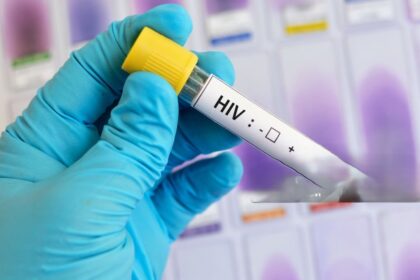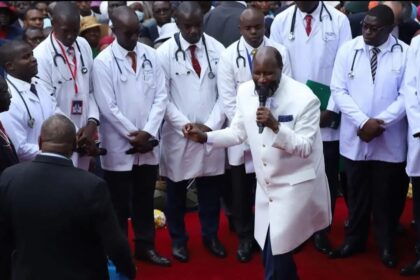In October 2025, the WHO urged countries to take stronger steps to reduce alcohol harm. The Alcohol Leaves a Mark campaign stressed that no amount of drinking is fully safe. Even moderate consumption increases certain health risks. The report called for tighter alcohol rules, stronger public awareness, and also better support for people struggling with alcohol use.
Alcohol affects the body in many harmful ways. It damages the liver, which works hard to break down toxins. Heavy drinking leads to fatty liver, inflammation, and cirrhosis. Alcohol also raises blood pressure and weakens the heart, increasing the risk of stroke and heart disease. These conditions develop slowly, making the damage hard to notice until it becomes serious.
An image of a damaged liver
The brain suffers too. Alcohol slows thinking, weakens memory, and reduces coordination. Long-term use can shrink brain tissue and affect mood. Many people experience anxiety, depression, and emotional instability because alcohol interferes with how the brain processes chemicals. Over time, the body becomes dependent, making it hard to stop without support.
Safer Strategies and the Path to Healthier Communities
The WHO encouraged governments to apply the Safer strategies. These include raising alcohol taxes, limiting where and when alcohol is sold, enforcing strict drink-driving laws, and reducing alcohol advertising. The organization also urged countries to expand screening and treatment for alcohol use disorders.
These measures work when fully enforced. Countries that apply strong controls see fewer accidents, fewer alcohol-related diseases, and safer communities. The October report made it clear that policy action is necessary for long-term change.
Individuals and communities also have a role. People can protect themselves by drinking less or avoiding alcohol. Schools, workplaces, and community groups can support awareness campaigns and promote healthy habits.
The WHO’s message is clear stating alcohol leaves a mark on everyone it touches. Excessive drinking harms health, breaks families, and strains economies. The October 2025 warning shows that reducing alcohol harm requires collective effort. With better policies, strong support systems, and informed choices, societies can lower the hidden burden of alcohol and build healthier futures.
Also read: AfDB Warns Kenya’s Rising Debt Poses Economic Risks













